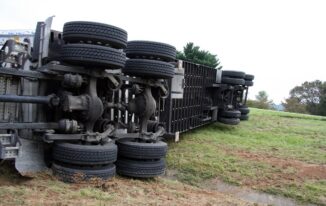Key Takeaways:
- Understand why gathering evidence promptly after a truck accident is crucial.
- Learn essential steps and types of evidence to collect.
- Recognize the role of legal representation in managing evidence.
Table of Contents:
- Introduction to Gathering Evidence
- Immediate Steps Following an Accident
- Types of Evidence to Collect
- How to Gather and Secure Evidence
- The Legal Benefits of Proper Evidence Collection
- The Role of Technology in Evidence Collection
- Why Legal Representation Matters
- Conclusion: Making Your Evidence Count
Introduction to Gathering Evidence
In the aftermath of a truck accident, gathering evidence is crucial to ensure justice and fair compensation. This process supports your claim and can be the difference between a successful or failed settlement. Engaging with aggressive legal representation for truck crash victims can help streamline this often overwhelming task.
Understanding the significance of evidence collection can empower victims and their families during this challenging time. This article will explore essential steps and strategies for effectively gathering and preserving evidence, which is crucial for protecting one’s rights.
Immediate Steps Following an Accident
After ensuring medical assistance is sought for injuries, individuals should prioritize safety by moving vehicles off the road. Once safe, contacting law enforcement to file an official accident report is essential.
While waiting for authorities, take photographs or videos of the accident scene, vehicle damage, road conditions, and visible injuries. Documenting these details immediately ensures that you capture the scene precisely as it was, which can be invaluable for insurance and legal proceedings later.

Types of Evidence to Collect
Various types of evidence can strengthen your case. Physical evidence includes vehicle debris, tire marks, and the condition of the road. Capturing video footage or photographs helps paint a picture of the event’s context and impact.
Obtain contact information from witnesses and record their statements, as these firsthand accounts can be powerful corroborative evidence. Securing the truck driver’s information, including license and insurance details, is vital. In some cases, trucking logs and electronic control module data, which records speed and braking patterns, may be accessible and provide critical insights into the incident’s circumstances.
How to Gather and Secure Evidence
Organizing the evidence you collect can ease using it effectively later. Maintain a systematic record of all photographs, videos, and documented statements. Ensure that witness contact information is stored accurately, and back up digital data in multiple places.
Collaboration with legal representatives can help secure more complex evidence, such as logs and modules, ensuring that all bases are covered and that evidence is admissible in court. This diligence helps avoid common pitfalls that could weaken your case.
The Legal Benefits of Proper Evidence Collection
Proper evidence collection is a backbone to legal proceedings, substantiating claims and demands. Without robust evidence, insurance companies might dispute the extent of damages or deny claims outright.
Evidence influences settlement negotiations and is pivotal in court proceedings, should the need arise. Comprehensive documentation paints a clear picture of liability and damages, supporting your position and increasing the likelihood of a favorable resolution.
The Role of Technology in Evidence Collection
Technology plays an ever-increasing role in evidence collection, offering tools that weren’t available in the past. Dashcams, for instance, can provide continuous video evidence that can prove invaluable.
Smartphone applications can help log evidence systematically, ensuring nothing is overlooked. With technology, evidence collection becomes more efficient, precise, and less prone to human error.
Why Legal Representation Matters
Hiring legal experts, including those that specialize in trucking accidents, allows you to take use of their resources and experience in obtaining evidence. This minimizes any oversight that might have an impact on the case’s outcome and guarantees a comprehensive and rigorous approach.
Legal advice can negotiate with insurance companies and, if necessary, present evidence in court with conviction. Their knowledge eases victims’ tension and burdens so they can concentrate on getting better.
Conclusion: Making Your Evidence Count
Evidence is a powerful asset in the journey to justice following a truck accident. By promptly and accurately collecting and preserving evidence, individuals protect their rights and strengthen their position in any legal claims.
With the help of legal professionals, victims can navigate the complexities of post-accident processes, ensuring their efforts in evidence collection translate into successful outcomes. Remember, the sooner evidence is gathered, the better equipped you are to achieve the justice and compensation you deserve.



